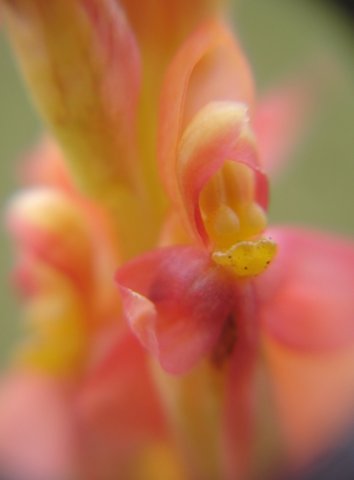Disa chrysostachya intimate moment

Author: Ivan Lätti
Photographer: Judd Kirkel Welwitch
The Disa chrysostachya flower observed closely has no defence against the invasion of its privacy, the perusal of its modesty. Sentience implies self-awareness and conscious experience.
There was a time when people considered animals as lacking sentience and cruelty to animals was rampant, not seen as wrong. Earlier humans often believed that other tribes, races and even castes or classes of people lacked the capacity for feeling pain or needed respect. People learn continually, as what we don’t know always exceeds what we do know. Will we someday refrain from invasion of plant privacy and become concerned about cutting and sawing them indiscriminately?
Albert Schweitzer’s philosophy of Reverence for Life (Ehrfurcht vor dem Leben) extended ethics to how people should treat all life. He wrote this already more than a century ago, extending the idea to respect for animals and plants and regarding this recognition as the essence of true civilisation. The innate will to live in humans should compel thinking beings to extend the same reverence for life to every other will to live as they give to their own.
Observation of nature continually reveals that all life shares the same will to live that we possess, unless we glorify war, become mentally ill or have to prepare for death. The evolution of ethics as a secondary living, manmade life form keeps hope alive for a better world in which humanity will in future relate more meaningfully with continually more of the other life forms.

